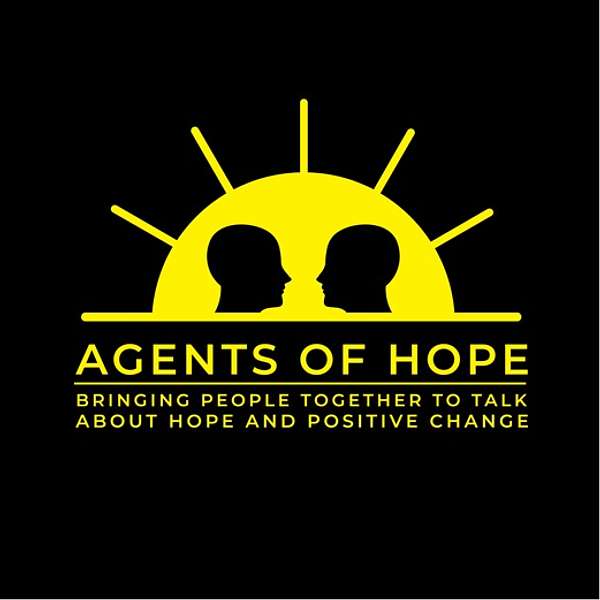
Agents of Hope
Agents of Hope
Slow Cooker Systemic Change with Dr Jagdish Barn
Use Left/Right to seek, Home/End to jump to start or end. Hold shift to jump forward or backward.
Hello everyone and welcome to the second episode of my new podcast 'Agents of Hope'.
My name is Tim Cox. I am a trainee Educational Psychologist and I am passionate about psychology, hope and society. This podcast aims to promote hopeful thinking and conversation about positive change in the field of applied educational psychology, education and wider society.
I hope that the podcast can shed light on the positive contribution of passionate people and inspires hopeful thinking, conversations and action. Please subscribe and leave a comment if you enjoyed this episode. Every episode I will include comments and questions about the podcast or the proposed subject, so please get involved!
Episode #2
In this episode, I speak to Dr Jagdish Barn. Jagdish is an experienced Educational Psychologist (of 23 years) who has developed a 'slow-cooker' approach to working with and affecting change in systems - schools, families, communities - through developing relational, curious and solution-focused practice. During the conversation, we speak about the values and narratives that underpin Jagdish's practice, from the sense of injustice developed as a schoolchild to the development of her private practice.
We try to define what a 'system' is and where we find these. We discuss acculturation, restorative practices, the difference between solution or hope-oriented and solution-focused practise and attending to the emotional aspects which underpin change. If you want to find out more about Jagdish's work you can check out her website:
https://www.focuspsychology.com
or follow her on Twitter @focuspsychology
We also try to answer some questions about hope and systemic change asked by #twitterEPs.
Suggested Reading
Acculturation
Barn, J K (2014) Acculturation preferences of primary school children of Muslim faith from different Arab ethnicities: An exploratory study https://orca.cf.ac.uk/69290/
Container Contained
Bion, W. R. (1994). Learning from experience. Jason Aronson. Chicago
Hope Theory
Cox, T. (2020). Agents of Hope: The utility and pragmatism of hope in applied Educational Psychology practice. DECP Debate(174), 17-23
Regulate-Relate-Reason
http://www.thinkkids.org/regulate-relate-reason/
Bruce Perry's website: https://www.neurosequential.com/
Pace Approach
Hughes, D., & Golding, K. (2012). Creating loving attachments: Parenting with PACE to nurture confidence and security in the troubled child. Jessica Kingsley Publishers.
Rogerian Principles
Rogers, C. R. (1979). The foundations of the person-centered approach. Education, 100(2), 98-107. Chicago
Restorative Approaches
Johnstone, G. (2013). Restorative justice: Ideas, values, debates. Routledge.
Solution Focused Practice
Selekman, M. D. (1997). Solution-focused therapy with children: Harnessing family strengths for systemic change. Guilford Press.
Solution-Oriented Practice
Rees, I. (2008). A systemic solution-oriented model. Frameworks for practice in educational psychology: A textbook for trainees and practitioners, 162-182.
Systems
Ryan, D. P. J. (2001). Bronfenbrenner’s ecological systems theory. Retrieved January, 9, 2012.
Bronfenbrenner, U., & Morris, P. A. (2007). The bioecological model of human development. Handbook of child psychology, 1.
Trauma-informed practice
Carello, J., & Butler, L. D. (2015). Practicing what we teach: Trauma-informed educational practice. Journal of Tea